|
3 stars
Did I read a different book than everyone else? Those stellar reviews are making me feel like I missed the hype boat on something… This was fine, but I couldn’t see past some reader-specific flops for me. Concept: ★★★★ Plot/Pacing: ★★★ Character setup: ★ Enjoyment: ★★★ A historical Western horror novel set on the United States/Mexico border in the 1800s, Vampires of El Norte is the kind of story that jumps out at you on the shelves. A Western-style ranch novel... with vampires? A historical fiction Western novel that...doesn't center itself on the white experience? Both of these things were huge radar pings for me, and I knew I needed to try this story. Nena is the daughter of a wealthy Mexican rancher, living the restricted life of a wealthy daughter during this time period. Her only source of excitement is her childhood best friend, Nestor, who is part of the ranch's live-in hired ranch help. But one tragic night involving an unknown beast in the dark alters the course of Nena and Nestor's lives forever, and Nestor flees in the middle of the night thinking the worst. When the two of them reconnect nine years later, Nena and Nestor are different people with different motivations. But their connection remains strong—for better or for worse—and they discover that they must put their personal issues aside to face a great threat from the Anglos encroaching on their land from the east. Because their homeland and lifestyle is coming to an end if they can't stem this tide of white encroachment. And there's something moving in the dark... Alright. So for the sake of avoiding plot spoilers, I will keep my personal reaction portion of the review relatively brief. There were several things about Vampires of El Norte that I enjoyed—the atmospheric setting, the twist on the traditional Western novel experience, and the infusion of Mexican heritage and culture to the vampire canon. However, there were a few quirks to this novel that, I'll be honest, really bothered me due to my personal reading tastes. THEY ARE LIGHT SPOILERS FOR THE BEGINNING OF THE NOVEL, SO STOP HERE if you don't want even the most mild of spoilers. Gone? Ok, so my largest issue that permeated throughout the entire reading experience was the inciting incident between Nena and Nestor. When Nena is brutally attacked as a child, Nestor thinks she's died. He literally flees into the night—worried that Nena's wealthy parents will seek retribution against him, which is valid—and he never returns. Nestor is gone for NINE YEARS. He does not confirm Nena's death, he does not talk to his family or grandmother for nine full years as they are still on Nena's ranch. He literally goes no contact and punishes himself for all of that time thinking his childhood best friend is dead. Then, when he has to return to the ranch, he discovers that Nena is very much alive. (He never bothered to even write a letter to his Abuela to check??) And while Nena acts normal in response—she's pissed, he left and never bothered to come back/verify—the rest of the family, including Nestor's own Abuela, just takes this in stride?? I'm sorry, the logic isn't logic-ing. I know I should have been able to put that aside and enjoy the rest of the novel for what it was, but I'll be honest. I wasn't able to get over it as it was the foundation of Nena and Nestor's adult relationship and the rest of the plot never eclipsed their relationship enough to allow me to forget. This was a highly romantic story and very character driven, so we were always focused on Nena and Nestor as a duo, and therefore I was constantly looking at this "rift" between them and just wishing we had a real problem instead. But that being said, obviously I'm just one reader! And given the excitement and enjoyment that a lot of other people got out of this novel, I'm guessing that my weird logic gap was a unique experience and not the norm. So I do recommend this for my historical fiction friends who want an extremely light dash of horror.
0 Comments
4 stars
This was such a fun read, and perfect for historical fiction fans and casual fans alike! A unique hook—bonesetting in 1700s London. And a very uniquely endearing character—Endurance "Durie" Proudfoot. Concept: ★★★★★ Characters: ★★★★★ Plot: ★★ Enjoyment: ★★★★ In the mid 1700s, Endurance "Durie" Proudfoot enters the world in the small English town of Lewes. She's larger than most women, stronger than most women, and her no-nonsense honest attitude takes up as much space in the room as her physical presence. In short, Durie sticks out. And not in an acceptable way for ladies to stick out in history. Her father is a bonesetter, someone who sets people's broken bones, sprains, dislocations, and more through a hands-on knowledge of anatomy and brute strength. It's a "knack," according to him, and one that's been passed down through the line of men in their family for generations. Durie has the knack too—it's just, she's a woman. When circumstances change and Durie has to follow her sister to London, Durie slowly realizes that her knack might be worth practicing here in London society. There's a lot of people with ailments, and the modern doctors with their random poultices are making things worse. Durie's never been one to let things sit when something good can be done, so she starts to practice. A lot happens when Durie--with her men's boots, large frame, blunt attitude, and undeniable talent—enters the London scene. She's in for an adventure.... That Bonesetter Woman took me by complete surprise. I am a very, VERY rare historical fiction reader—I tend to fall into these books via some other hook that gets me invested. In this case, it was the act of bonesetting. Bonesetting as a career was new to me, and immediately piqued my interest as I love all things medical history and macabre. Obviously, this fit the bill! However, it wasn't the act of bonesetting that kept me turning the pages of this novel. It was Durie herself. I fell in love with this blunt, kind-hearted woman who stuck out in all the ways it was possible to stuck out like a sore thumb at the time. I quickly found myself invested in Durie's journey, her passions, and her capacity for kindness and love. This is a character-driven story with a lot of humor and heart. I will say, due to the above pros in this tale, there were a few cons by comparison. This plot was predictable at every turn—do NOT come for a unique and surprisingly take on this type of "girl goes to the big city and shoots her shot" type of story. All of the things that happen in that stereotyped tale happen here, and with the same outcomes you'd expect. However, if you can put the predictableness aside, this story will steal your attention and your heart anyway. Go Durie, go! 4.5 stars This historical mystery series is criminally underrated—I LOVE it, y’all. Queer rep, 1940s noir with a modern edge, witty as hell, and so much fun you can’t stop reading/listening/laughing. I highly recommend the audiobook. Characters: ★★★★★ Audiobook experience: ★★★★★ Plot/Pacing: ★★★★ This is the third installment in the Pentecost and Parker mystery series. While they each can be read as standalones, the first two books are great too and I recommend starting there. Pentecost and Parker are back! And there's a new series of murders in town.... Willowjean 'Will' Parker and her boss, Ms. Lillian Pentecost, are a private detective duo operating in 1940s New York City as two women with a reputation for solving New York's most troubling and unsolved cases. They're a unique crime-fighting duo for the 1940s—two single women, one older with a multiple sclerosis diagnosis and one in her 20s with a passion for crime and for love affairs with both men and women—and their passion for helping women, people of color, and those in special circumstances has given them a boatload of cases and a sensational relationship with the press. In Secrets Typed in Blood, the case for Pentecost and Parker starts with a high body count and a ticking clock. There's a copycat murder on the loose, killing New Yorkers in a sensational way and ripping their crimes from the fictional stories of one particular crime writer. Holly Quick pens crime stories for a local paper under many pseudonyms. When she notices a disturbing link between her fictional murders and some real-life headlines, she calls up Pentecost and Parker. Her one stipulation? No police. Will and Ms. Pentecost are very aware that Holly's hiding secrets of her own, but the mystery of the copycat killer is too enthralling to pass up. They take the case. Y'all! My neighbors could hear my scream of happiness when this latest book appeared on my doorstep. This series—and in particular, these characters—have my heart and I've been an advocate for them since my first read last year. The perfect hybrid between cozy mystery and noir, Pentecost and Parker fulfill an interesting niche in the detective story scene. They're historical and filled with banter, but they're not your grandmother's predictable tea shop cozy. They're intricately plotted and their murders are ghastly, but it's not the grim never-ending darkness of today's modern detective mystery/thriller. There's something about this series that hits all of my buttons. This particular installment was nicely paced and a fresh mystery for the iconic duo to solve. I liked the interplay between the copycat murderer and the social mystery behind Holly Quick's backstory. I also liked that the slow-burn unsolved mystery that emerged in the early books continued in the background of this one--similar to Sherlock with Moriarty, Pentecost and Parker have a "big bad" that they're chasing behind the scenes of their current drama. I'm excited to see that play out in future books. Don't sleep on this story—pick it up! And for my listening friends, I can't recommend the audiobook highly enough, it's fabulous. *I receive a small commission from Libro.fm if you use my link above.
4 stars
A nightmare, a blood-soaked ecstatic love story, a confession told in letters in the dark. A Dowry of Blood surprised me with its consuming reading experience. Narrative style: ★★★★★ Pacing: ★★★★ Enjoyment: ★★★★ When this book simmered its way onto the radar of the online community during the pandemic, I initially ignored it. Let's finish digging myself that hole: I completely and utterly ignored this book. My reasoning for completely refusing to listen to people's pitches and reviews of this book came from sweeping assumptions that I made based off of the title and limited description. Dracula? Pfft, no thanks, that story's been done. A bloody, toxic, gothic love story? Again, no thanks, I've read that book and seen that vampire movie. Right...? Wrong. A Dowry of Blood was something different, something much more engaging. A series of letters written to "you," a male creature we all know by name and yet deserves no autonomy in this story—because he gave our narrator none. "This is my last love letter to you, though some would call it a confession..." Constanta was the first, the most loved of his brides. But that doesn't mean she had it good. Love can be cloistering, cloying, and caustic as much as an all-consuming desire. Constanta knows this more than anyone. How long would it take you to understand the difference between possessive and possessed? Amid consuming passion that spanned decades and countries and wealth beyond imagining, how long would it take you to reflect on the true monster lurking in the dark? Immersive, lushly described, and dreadly romantic, this series of letters bound into a novel was a truly interesting reading experience. I recommend it broadly to those who hate the origin story, and to those who find vampire novels dull. This is not a vampire novel—okay, it is, but it also ISN'T—and it's definitely not a rosy interpretation on toxic love that we're meant to swoon over. This was something fresh and lovely, as terrible as that is to say about something absolutely soaked in blood. 4 stars
A locked room mystery, a 1950s queer haven manor, and an interesting soap side plot. This was so wonderful—and remarkably cozy even with its dark themes. Plot/Pacing: ★★★★ Characters: ★★★★★ Mystery(s)/Reveal(s): ★★ 1/2 Enjoyment: ★★★★ 1952, California. Andy is a former detective at the end of the line. He's ready to call it quits in a very real way—trigger warnings right out the gate—and he has nothing left to strive for. He's gay in 1950s America. Recently outed at a raid by his own former police officer coworkers and ruthlessly fired from the force, Andy doesn't know what is next, and if it's worth finding out at all. The last thing he expects is to be offered a job sitting at the bar, blind drunk at 11 am. A well-dressed, wealthy older woman wants him to solve a murder. Well, maybe it was a murder. Either way—she wants to know what happened, and she's willing to pay Andy and house him for his trouble. Oh, and the best part? This woman and her surviving found family live in a hidden utopia of queerness. The dead woman is her wife, and their blended family are all queer on the estate. Andy doesn't know how to receive this news, but he takes the lifeline for what it is and accepts the job. However, the family is hiding secrets. (Aren't they all?) And Andy's stepping into a much bigger scene than he's anticipating. When you factor in the dead woman's soap dynasty... things are about to get interesting. Lavender House was the perfect read for me at the right time. It was surprisingly cozy, the right blend of serious with quaint, and a remix of the classics bringing something fresh to the character tableau of the "classic" murder mystery setting. It also deftly handled the line of realism vs. utopian ideals surrounding the concept of a hidden queer family living happily in the 1950s. They were a wealthy family who kept to themselves and had the resources to keep their happiness separate from harsh realities, true, but the doses of reality in this novel kept this story grounded for me. I will caution my queer friends and those reading this review—given the contents, there is a lot of potentially triggering content for period homophobia and other elements. Please proceed with caution. Overall, a fantastic cozy read that I would be happy to pick up again when I'm in need of a quaint escape. Thank you to TOR Forge for my copy in exchange for an honest review. 3.5 stars
Sultry, slow, and dripping with tension-filled nods to a classic novel--The Daughter of Doctor Moreau was a unique reading experience. (Aren't they all, when it comes to this author?) Silvia Moreno-Garcia strikes again! It's a shame that this particular one didn't hit the favorite zone for my reading tastes. Concepts: ★★★★★ Pacing: ★★ Character connection: ★★★ Sense of atmosphere: ★★★ This is going to be an interesting review. I didn't love it, but let me gush about it anyway and try to get you to pick it up... Carlota is growing up on her father's remote estate in the wilderness of the Yucatan peninsula. It's the late 1800s. Her father is a disgraced French scientist—with the name of Moreau. Carlota's childhood is strange. It's filled with medications, an odd cast of friends and servants with physical peculiarities, and the constant reminder from her overbearing white father to keep calm and hide behind the verses of the Bible. Laughton Montgomery is a middle-aged Englishman accidentally entrenched in the Mexican scene. He's an alcoholic with a sad backstory, and he's in serious debt to Eduardo Lizaldes, a wealthy light-skinned Spanish-Mexican man holding all of the cards in this story: including both Montgomery's debts and the estate funding holding up Moreau's life in the wilderness. Moreau needs a man on site to help with his work. Montgomery needs to do what Lizaldes tells him to. Carlota finds herself involved and intrigued by the things simmering around her. As the years pass by, Montgomery and Carlota find themselves at the heart of a slowing unfolding drama involving experimentations, Mexican/Maya politics, and the meaning of humanity. Will they find (or lose) themselves along the way? Mm, mm, mmm. Silvia Moreno-Garcia continues to rock pretty much anything she sets her mind to. So far, I've personally seen her kill it in body horror, 1970s crime noir, futuristic urban vampire dramas, 20th century Mayan death god adventures, and high fantasy quests. There is seemingly nothing she can't conquer—and in this case, her sights are set on a culturally rich interpretation of an H.G. Wells classic, The Island of Doctor Moreau. I think this novel is going to be like all of her other ones: it's going to REALLY work for some people, and it's going to REALLY not work for others. The added complexity to this particular story is the restraints placed upon it. By tying it to the H.G. Wells concepts, this adaptation was already roughly structured to follow certain ideas, tropes, and trains of thought. Whether subverted or followed, The Daughter of Doctor Moreau was going to have certain elements addressed. And that's, I think, where I struggled a bit and others will love this. I love Moreno-Garcia for her ingenuity, her turns of concepts, her bizarre way of writing sentences that make me slow down. Linger. Absorb.. These are stories with interesting characters that do things you don't expect or approve of, and they're often not very likeable or relatable. I've always liked that—the distanced yet intimate journeys with people I don't understand and therefore can't predict. However, this particular story deviated from those expectations. I found Carlota and Montgomery—our two points of view—to be both predictable and weirdly bland, and yet the most likeable of all of her characters. I personally neither liked nor disliked them. Frankly, I think the characters were a lower priority in this story compared to the setting and interweaving of the Moreau/H.G. Wells template and the late 1800s Mexican conflicts that Moreno-Garcia wanted to address. Which, again, is both a negative for readers like myself and yet a huge positive for fans of historical fiction and atmosphere. Was it lush? Yes. Was it filled with dripping gothic tension? Yes. Was it a jungle dream of animal hybrids meeting Mexican interpretations? Yes. But was it a personal, Amy favorite? Nah. I was looking for surprise, for character-driven ingenuity. For an atmosphere I didn't want to leave and felt was sucking me into its pages. The Daughter of Doctor Moreau didn't do that for me. But I think that's more due to the fact that I have an unsustainably high standard for each Moreno-Garcia work that comes in my path and an expectation for characters rather than flaws within this particular story. This book would be a shining star in other circles, and I think it is shining for those who have loved it and are potentially new to this author's work and/or interested in historical fiction. For us returning folks (and those of us who don't care about the H.G. Wells original), I'm not sure. Go into it with a historical and atmospheric expectation, and see what happens. I'm curious about what you'll find... 3.5 stars
The 1960s, Greek islands, a young girl on the cusp of artistic pursuits and adulthood, and a saturated look at men and women colliding together. Sense of place: ★★★★★ Plot/Pacing: ★★★ Characters: ★★★ Erica's a fresh-faced young woman from London who's just arrived on Hydra, one of the picturesque Greek islands haunted by the rich, artistic, and beautiful. Its 1960, bohemia is all the rage, sexuality and the artistic are colliding together in various ways. It's heady days, and a heady setting. A Theater for Dreamers follows Erica's journey into this rich tapestry of desires, art, lush settings, and mired interpersonal relationships. For us readers, it's an interesting blend of fact and fiction too—Leonard Cohen's real life persona meets a fictional group of folks in this window into the past. It's fantastically described, enviously set in a beautiful location, and classically portrayed through the eyes of our young and naïve protagonist. I am, admittedly, a weird audience for this book. Every once in a while I like to step out of my reading comfort zone, if you will, and try things setting in different genres and settings. Historical fiction and destination locations/summer reads are not usually my cup of tea, so I think my rating reflects the fact that this isn't my usual read. I found Erica to be an enjoyable main character to follow, if a bit annoyingly naïve. (I find this is often the case though with this kind of setup, so let's call it part of the territory.) Her fresh eyes experiencing this kind of sweltering landscape of sensual politics and artists in collision was extremely well done. Even though we've seen this story before, I thought it was done well. I will say the novel lost me a bit with its sheer number of descriptions and meandering prose. I'm a "get to the point" type of reader unless it's a special case (usually in the fantasy realm) so I found myself getting frustrated with the paragraph to paragraph pacing. But do take that with the reviewer's grain of salt—I think this prose will work beautifully for those who love historical fiction/beach reads. Thank you to Algonquin Books for my copy in exchange for an honest review. 3.5 stars
I think the concepts, representation, and emotional journeys were all top tier. I laughed out loud a lot and absolutely loved the side characters with all of my soul. But I must say, the actual plot and pacing were dull by comparison. Representation: all of the stars Plot/Pacing: ★★ Characters: ★★★★ Enjoyment: ★★★ Viola Carroll is finally living the the life she's always wanted. When Waterloo and the war gives her the perfect opportunity to disappear for good and start a new, true life for herself as Viola, she runs with it and never looks back. But Viola's past has not fully escaped her, and one of the people from her past haunts her still. Her childhood best friend, Justin Gracewood, needs help. The Duke of Gracewood is in mourning for his lost best friend. He blames himself for the loss, the war, and for his disability returning from the warfront. Gracewood is slipping into an opium dependency and a depression with no light in sight. Things are dire. When Viola learns of Gracewood's distress, she and her sister-in-law, the Lady Marleigh, decide to intervene. Viola knows she's playing with fire—how long can she hide her very-much-alive presence from her oldest friend?—but the choice is a done deal. She is going to help Gracewood no matter the cost. But Viola's new ability to explore life as her true womanly self has opened up yet another wrinkle when it comes to Gracewood: she can no longer ignore the fact that her feelings for him are considerably more than friendly. Will these two old friends see past themselves and achieve an ideal form of happiness? Quaint, happy, and filled with heart, A Lady for a Duke is a shining example of a new type of inclusive historical romance. My thoughts: Let's start this reaction off with some honesty: I am very conflicted about my star rating of this review. On the one hand, I want to support this title and showcase how happy I am to see it exist, see it hold such a positive and happy storyline, and see it receive a wide readership. Squeals all around, this was adorable and wonderful and I felt all of the feelings. On the other hand, I have to discuss the significant flaws in this novel's pacing, plot construction, and overall sense of boringness due to its drawn out pacing and lackluster scenes. This novel is almost 500 pages long... and it feels like it. Cute scenes of emotional honesty between Viola and Justin were awesome and I loved them, but after the 200 page mark it became painfully obvious that we as readers were going to basically experience the same variant of the same type of emotional scene over and over again. Viola and Justin have barely any drama—which was good for the health of their relationship—but it did lead to a lack of opportunity for newness in their dialogue and interactions. Justin reassures Viola about X, Viola reassures Justin about Y....wash and repeat. So many of their scenes could have been remixed into any spot in the plot and been completely fine, that's how identical in tone and importance they were. The only spot of freshness in this story did not come from the main characters at all—it came from the side characters, Lady Marleigh (sister-in-law to Viola) and Lady Gracewood (Justin's younger sister). They were doing fresh things in this story, thank goodness, and Justin and Viola got to semi-react to those events throughout the novel. But that did make for awkward reading in a romance subniche that tends to rely on its main characters to provide the agency in a story. Definitely a conflict, and frankly a good one to have as again, the fact that this book is here at all on the bookshelves in the store is a wonderful thing. I'm glad this book exists and that I can quibble over its issues—but as a reviewer I do still need to highlight them. Eagerly looking forward to more fresh stories in the historical romance canon to join this one on the shelves. 4.5 stars
A witty duo, the 1940s with a modern edge, and a whole lotta mystery. If you read anything remotely related to cozy mysteries or dynamic female duos being badasses, you NEED to have this on your radar. Characters: ★★★★★ Plot/Pacing: ★★★★★ Enjoyment: ★★★★★ It's the mid-1940s in New York City and Willowjean "Will" Parker is working as night shift muscle for an abandoned construction site. Will's always looking for cash in between circus gigs, and this one pays as well as anything. (And Will knows how to handle herself.) What Will isn't expecting, however, is to witness Lillian Pentecost in action. Middle-aged, wielding an elegant cane for her multiple sclerosis (M.S.), and dressed in an impeccable tailored suit, Ms. Pentecost is here to catch a killer and completely unbothered by Will's presence. Will ends up killing said murderer—with a throwing knife to the back—for Ms. Pentecost's sake. The dynamic duo is born. Months later, Will and Ms. Pentecost are the best private detectives in the game, with cases spanning from the mundane to the spectacular. And this time, it's a classic locked-room mystery that's piqued their interest. A rich man dies, supposedly by suicide. A year later, his widow dies in a locked room after a disturbing séance. Are the two deaths connected, and if so, are they murders? This was so. much. fun. I can't state that enough. For one thing, it's rare to find a cozy mystery series that packs a punch at every single level. Engaging characters? Check. Engaging plot beyond the basics? Check. Authentic bisexual representation? Check. Intricate world-building beyond the murder? Check. Humor for days? Check. Fortune Favors the Dead had it ALL, folks. I am in love with these characters and their adventures. I hope the author writes many, many more to come. Do yourself a solid and pick this up, I promise you won't regret it. 3.5 stars
These historical romances are like candy, you just can never have enough. When one young woman discovers her respectable, aristocratic husband died and left her to discover that she was actually one of three wives? Whew. Bit of a pickle. Concept: ★★★★ Plot/Pacing: ★★★ Chracters: ★★ Katherine Vareck shows up to her late husband's will reading and discovers, to her shock, that she is not the only Mrs. at the table. In fact, she's one of three wives... and all three of them are in for a real mess. Enter Christian, the deceased's older brother and the Duke of Ransford. Christian had no idea about these three wives, or his brother Meriwether's appalling lack of decency. Christian knows he needs to do some sort of right by these women, but he's not sure what to do and his own personal situation is in an interesting spot as well—so he's not sure what he can do, anyway. With drama, wiles, and a whole lot of surprising business acumen, Christian and Katherine find themselves working together to support the other two wives, themselves, and potentially each other in this charming series opener. Overall, I thought this story was cute and charming. It was not the most memorable for me, personally, as a romance reader—but I've had a pretty hard time with historical romances this year in general so it might just be my burnout talking. Some unique elements of this story centered around the dynamic of Katherine and Christian, surprisingly. Unlike many, MANY other Regency-era romances that rely on animosity, misunderstandings, and mild enemies-to-lovers to make their characters pop, A Duke in Time actually started off with its love interests tackling their problem together, as a team very squarely on board with each other's place in their duo. It was refreshing and oddly charming. If you're a fan of historical romances, add this one to your list! Thanks so much to St Martin's Press for my copy in exchange for an honest review |
Amy Imogene ReadsJust someone looking for her own door into Wonderland. Categories
All
Archives
July 2024
|
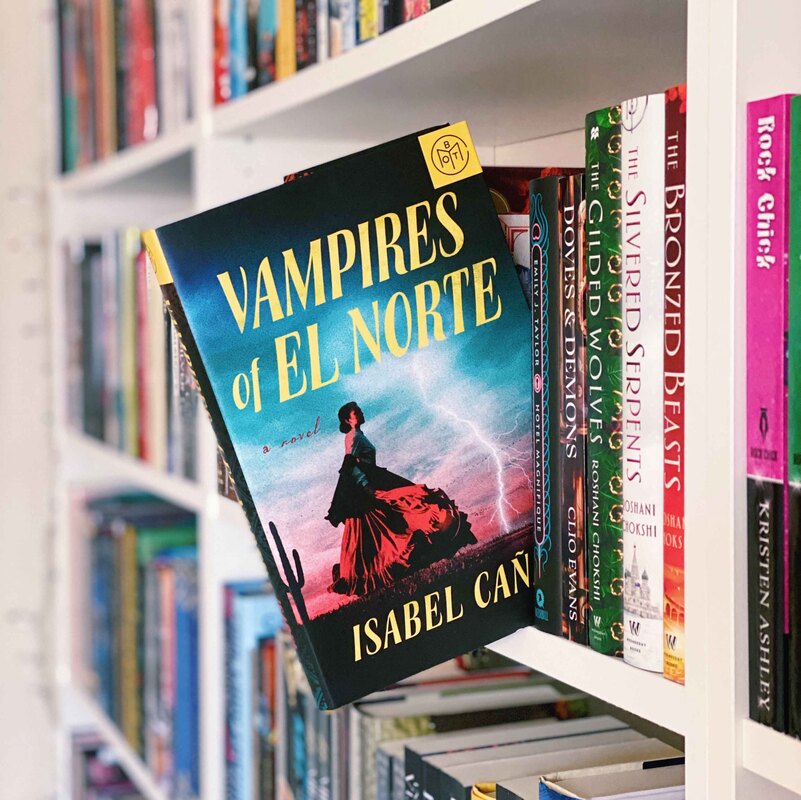
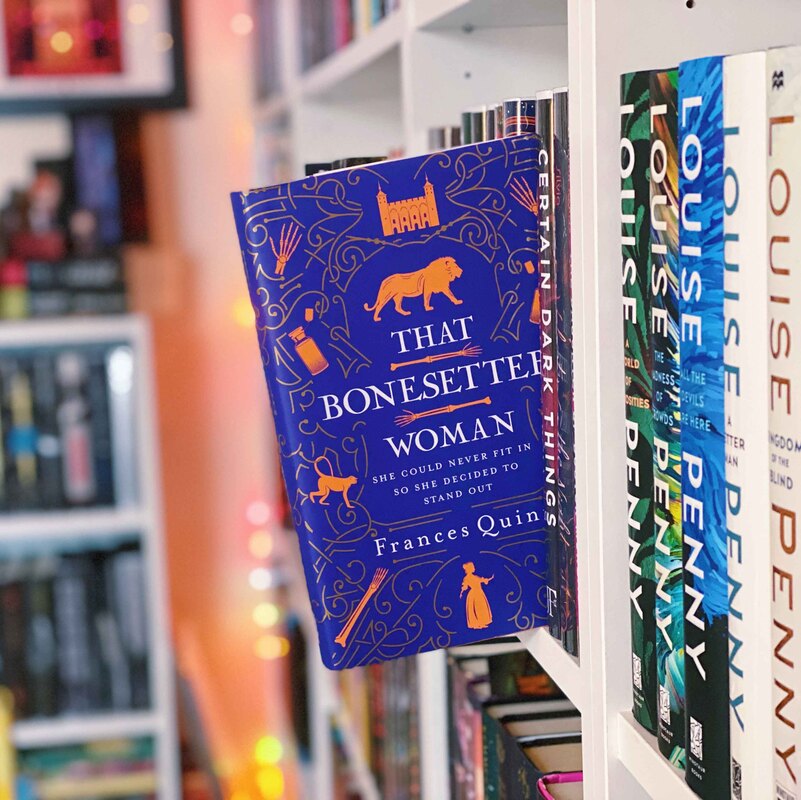
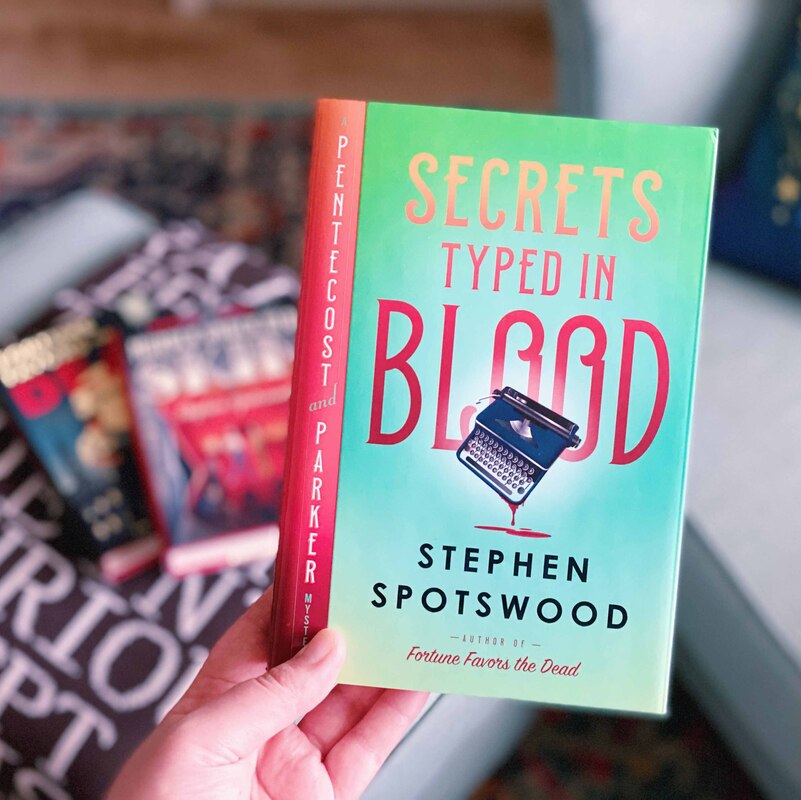
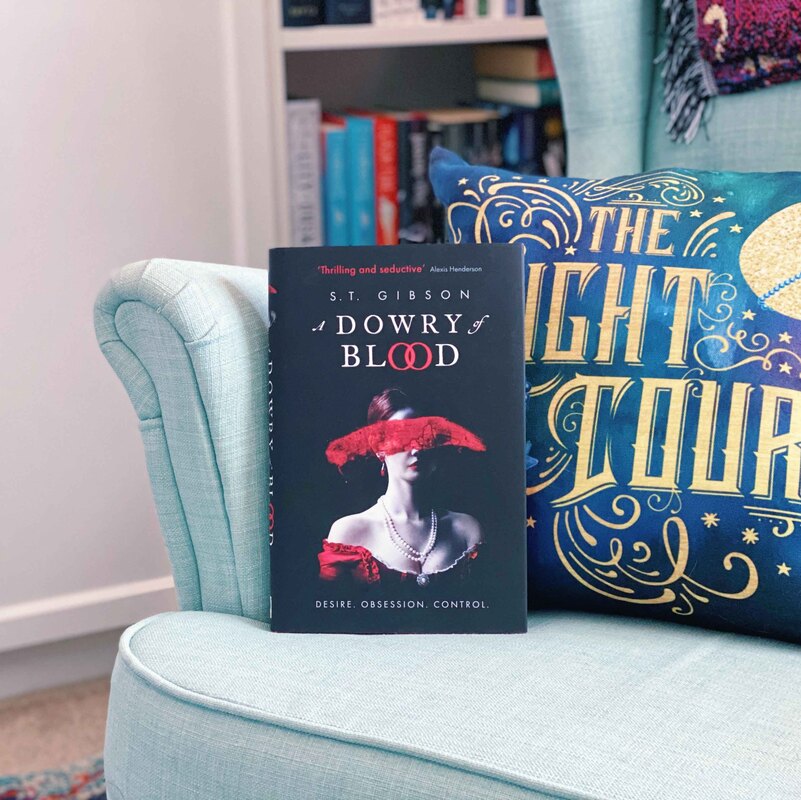
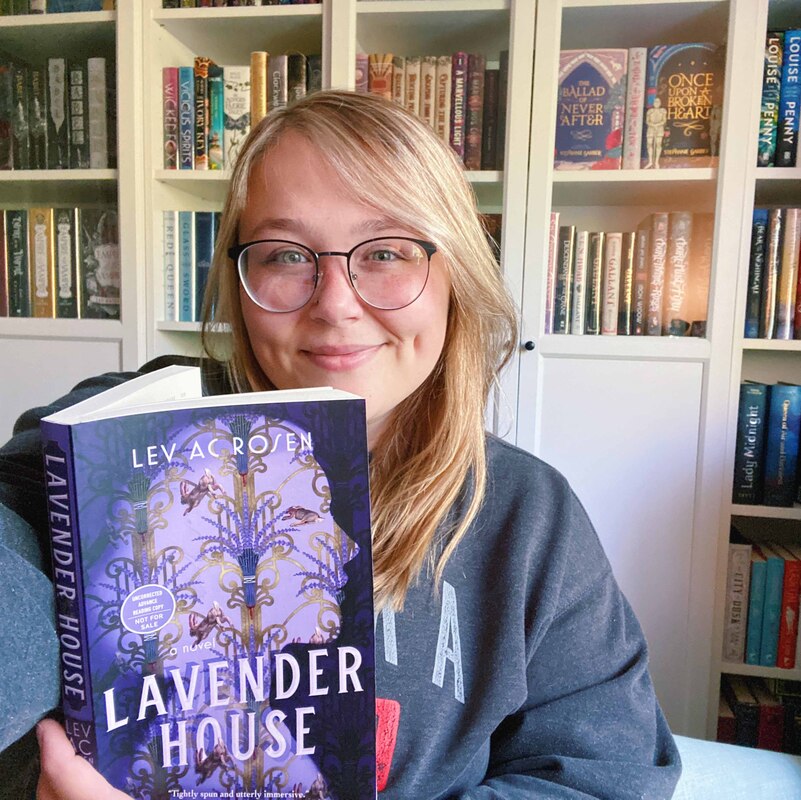
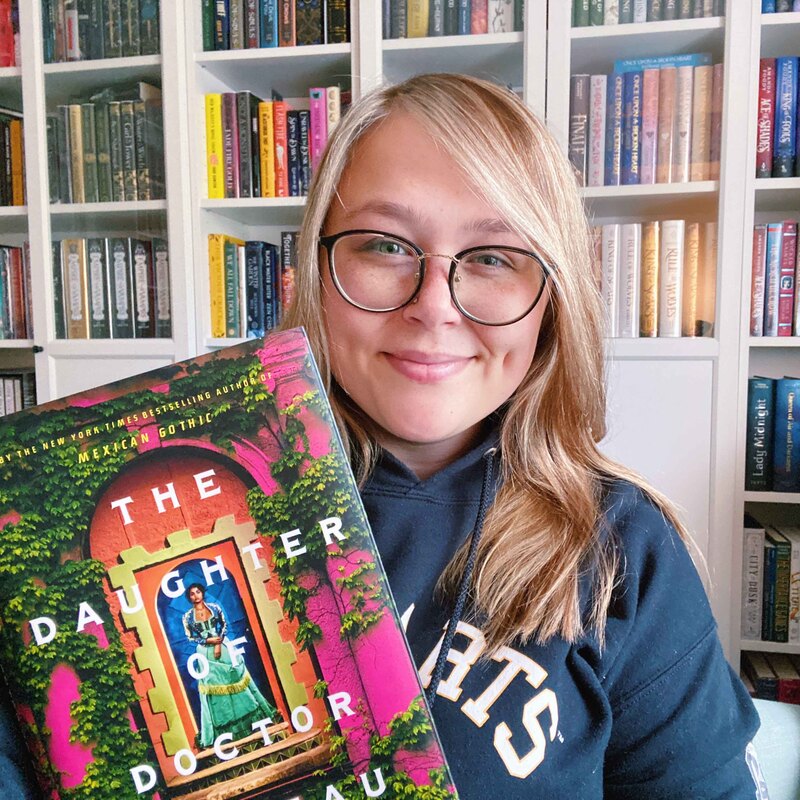
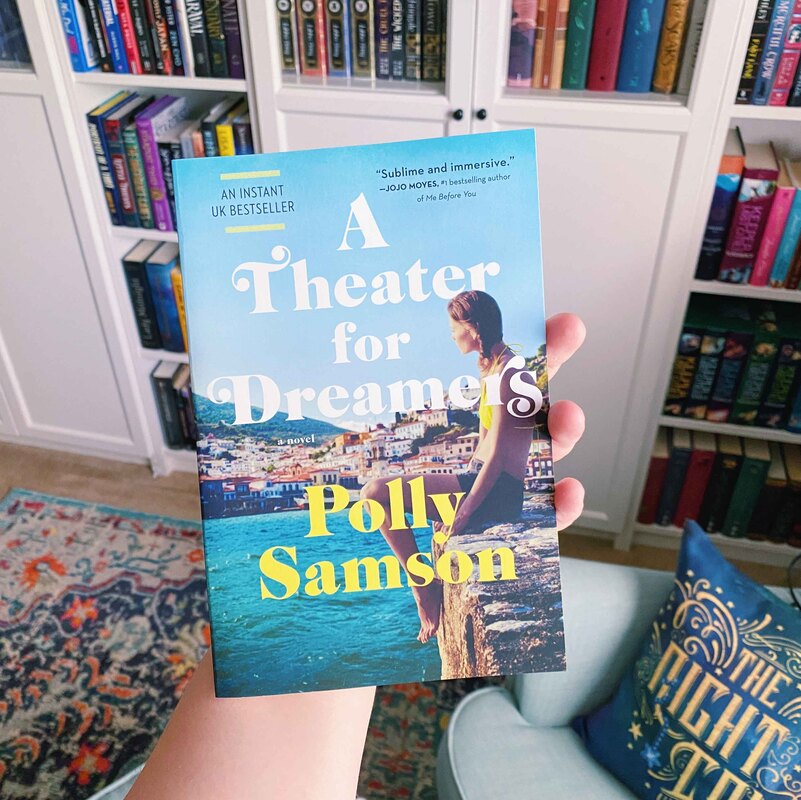

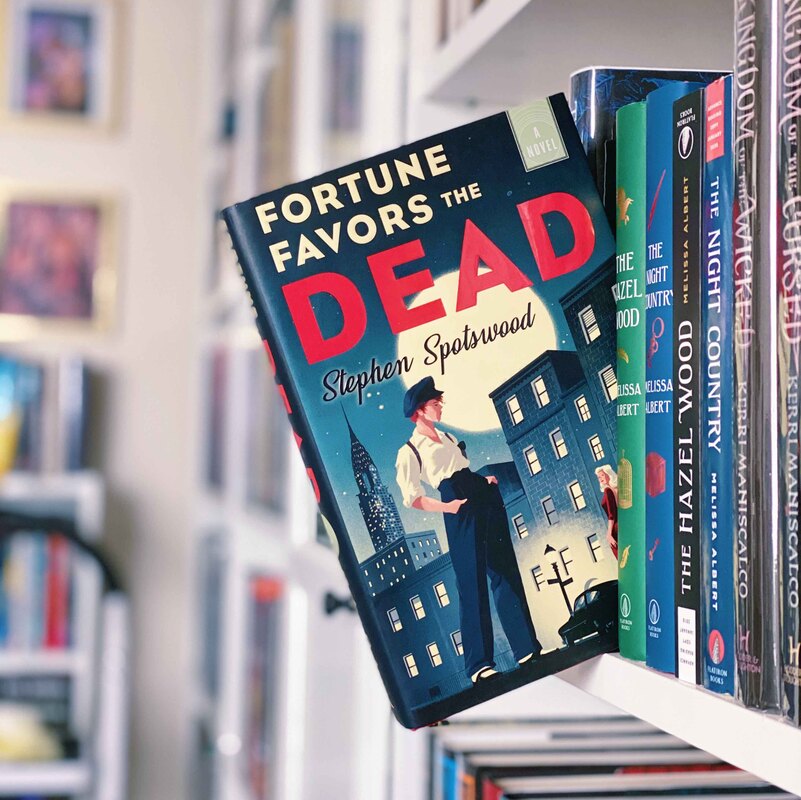
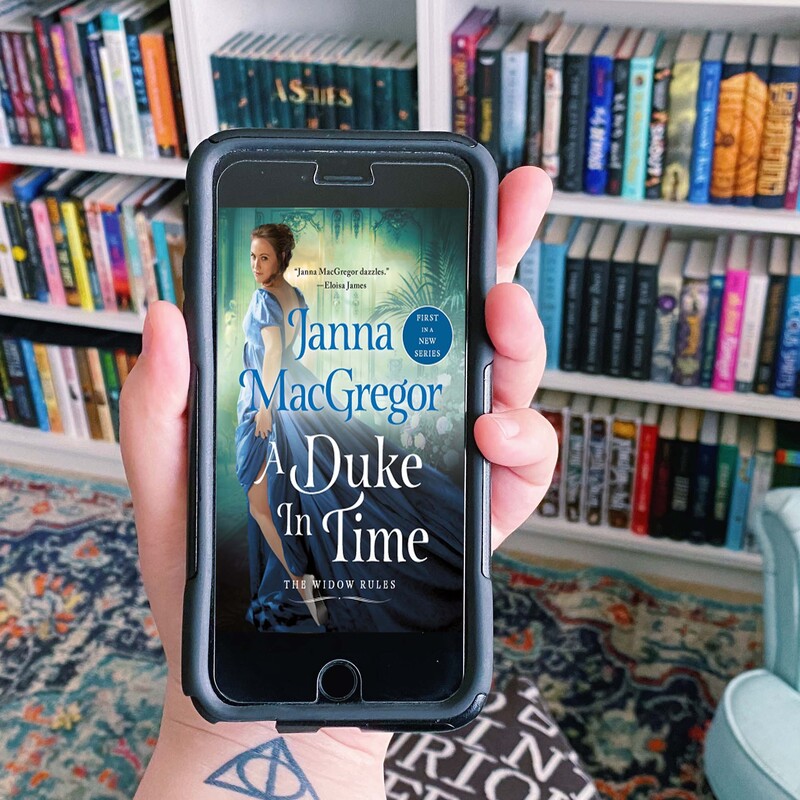

 RSS Feed
RSS Feed
